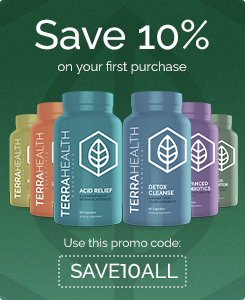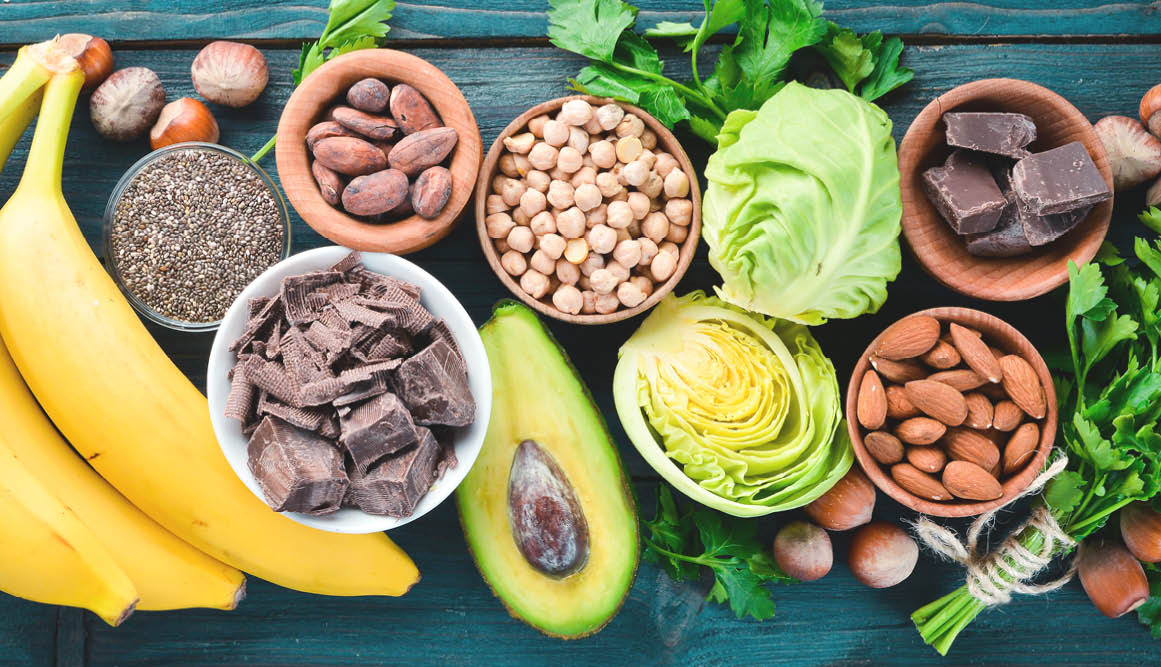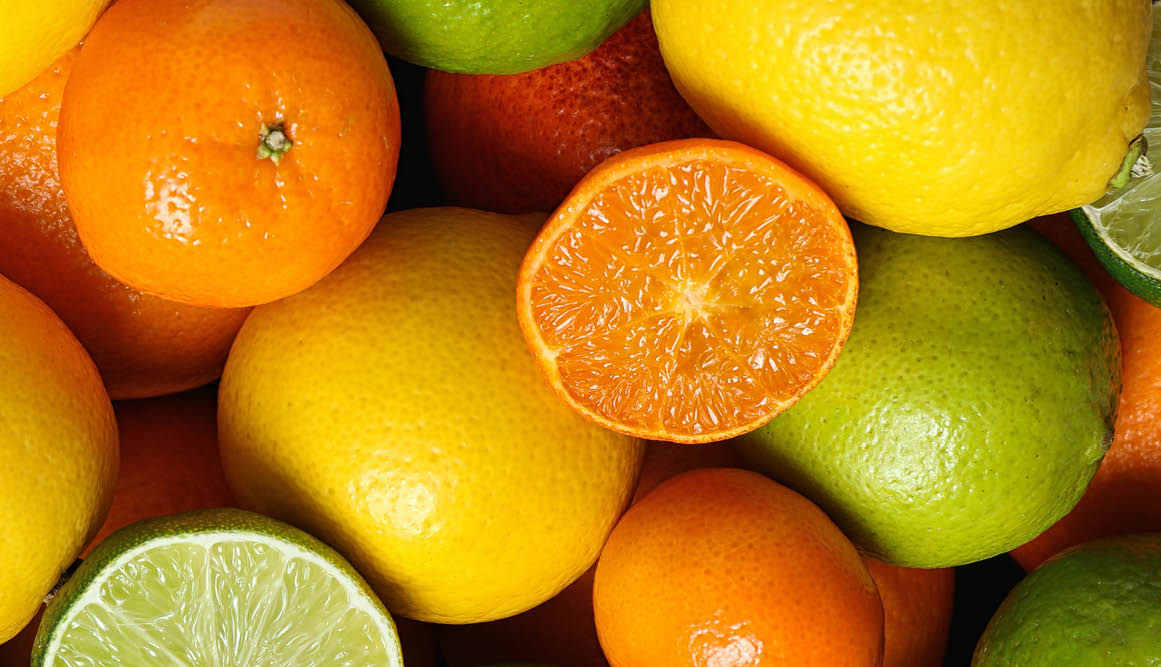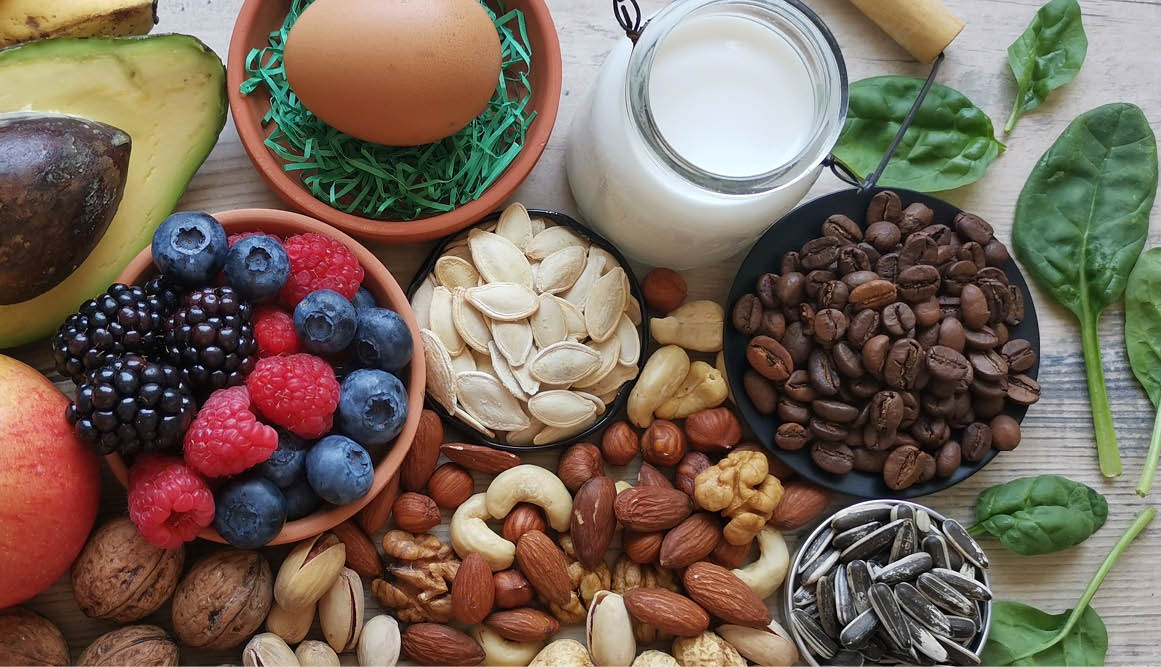Improving your diet is one of the simplest and most effective ways to improve your gut health. You’re probably thinking “I already know this”, but the reality is that it takes work, and sometimes life gets in the way of making the right choices!
The thing is, your gut REALLY doesn’t get enough credit. It’s your body’s best friend, constantly working behind the scenes to keep you healthy and feeling your best. Not only does it help you digest your food, it also wields considerable power over your immune system and even influences your mood. But this power is all within your own grasp. Regardless of where you’re starting from in your wellness journey, you can transform your gut health with some simple and consistent dietary adjustments. By choosing the right foods and supplements, you can provide your gut with the nutrients it needs to perform at its best.
In this guide, we’ll delve into the benefits of six essential gut nutrients: Magnesium, Collagen, Vitamin C, Glutamine, Vitamin D, and Omega-3 fatty acids. So stick around. Trust us, your gut will thank you for it!
Magnesium: The Gut’s Calming Mineral
Signs of Magnesium Deficiency:
- Restless legs
- Fatigue
- Poor appetite
- Nausea
- Mood changes
- Stiffness
- Insomnia
Alarmingly, the World Health Organisation has revealed that a whopping 75% of the US population alone are deficient in this essential nutrient. So how can you increase your intake? Adding magnesium rich foods to your diet is a good place to start!
Foods High in Magnesium:
- Spinach
- Almonds
- Whole grains
- Beans
- Dark chocolate
- Avocados
- Fatty fish
Collagen: The Gut’s Repair Mechanism
When you think of collagen, your mind likely automatically goes to skincare. It seems like all we ever see these days are commercials for collagen-infused products to help us maintain that coveted youthful glow. But there’s a lot more to collagen than its role in skincare. Nearly 30% of the protein in your body is made up of collagen. Its name is actually derived from the Greek word “kolla,” meaning “glue,” as it holds the body together!
With that in mind, you won’t be surprised to learn that having sufficient collagen in your system is crucial for your gut health. Think of it as the repair guy for your gut lining. Collagen repairs and strengthens the intestinal tract, making it more resilient to inflammation and improving nutrient absorption. Unfortunately, this protein decreases with age, stress, smoking, and even from overexposure to the sun.
Signs of Collagen Deficiency:
- Wrinkles & fine lines
- Joint Pain/Osteoarthritis:
- Thinning, graying hair & brittle nails
- Leaky gut
- Muscle pain
- Low blood pressure (causing dizziness and fatigue).
- Decreased bone density
Collagen-Rich Foods:
- Bone broth (beef and pork)
- Skin-On Chicken
- Broccoli
- Fish
- Chicken
- Egg white
- Berries, citrus, and tropical fruit
- Garlic
Vitamin C: The Gut’s Friendly Bacteria Booster
Signs of Vitamin C Deficiency:
- Fatigue
- Weak immune system
- Digestive problems
- Dry and damaged skin
- Swollen gums
- Joint pain
- Mood changes
Foods Rich in Vitamin C:
Including these vitamin C-rich foods in your daily meals will help you maintain healthy vitamin C levels, supporting your immune system, skin, and overall well-being.
- Citrus fruits
- Bell peppers
- Berries
- Kiwi
- Papaya
- Mango
- Guava
- Broccoli
- Spinach
- Tomatoes
Glutamine: The Gut’s Protector
Signs of Glutamine Deficiency:
- Digestive issues: bloating, gas, abdominal pain
- Prone to infections
- Slow wound and injury healing
- Muscle weakness
- Fatigue
- Mood changes
Foods Rich in Glutamine:
- Lean meats, poultry, fish, eggs
- Milk, yogurt, cheese
- Legumes, such as beans and lentils, tofu and tempeh
- Almonds, walnuts, sunflower seeds, and chia seeds
- Spinach and parsley
Vitamin D: The Gut’s Sunshine Vitamin
With regards to gut health specifically, Vitamin D helps to maintain a balanced gut microbiome which is crucial for effective digestion and enhanced nutrient absorption..
Signs of Vitamin D Deficiency:
- Bloating, cramps, diarrhea
- Weakened immune system
- Poor nutrient absorption
- Fatigue
- Poor sleep
- Aching bones
- Depression
- Hair loss
- Muscle weakness.
- Poor appetite
Sources of Vitamin D:
- Sun exposure
- Fatty fish
- Fortified dairy products (watch out for that “added Vitamin D” label)
- Eggs
Omega-3 Fatty Acids: The Gut’s Anti-Inflammatory Allies
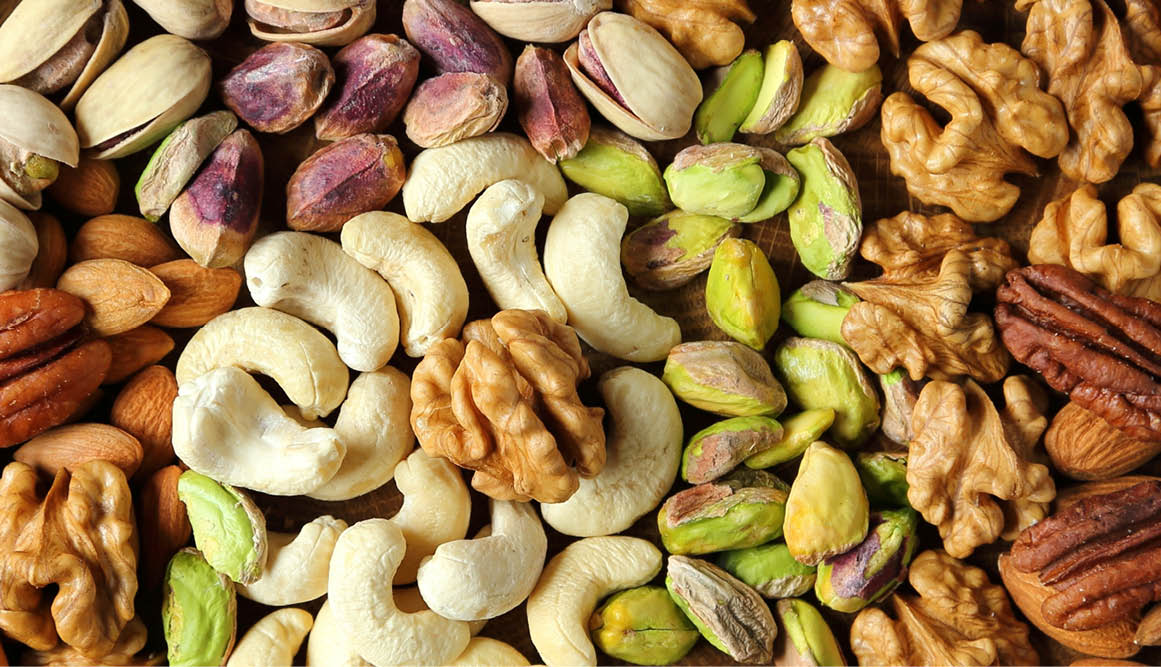 Omega-3 fatty acids are the anti-inflammatory superheroes of your gut. These essential polyunsaturated fats have a remarkable capacity to reduce inflammation in your digestive tract. Inflammation is a common issue in gastrointestinal disorders and many people are unaware of just how helpful Omega-3 can be in supporting gut health in this regard. These healthy fats are also vital in maintaining the delicate balance between beneficial and harmful bacteria in your gut. .
Omega-3 fatty acids are the anti-inflammatory superheroes of your gut. These essential polyunsaturated fats have a remarkable capacity to reduce inflammation in your digestive tract. Inflammation is a common issue in gastrointestinal disorders and many people are unaware of just how helpful Omega-3 can be in supporting gut health in this regard. These healthy fats are also vital in maintaining the delicate balance between beneficial and harmful bacteria in your gut. .
In addition, Omega-3s further enhance nutrient absorption in your gut, ensuring that the vitamins and minerals from your food are all utilized by your body. This multifaceted support is particularly crucial for your gut health, as it plays a key role in digestion, overall well-being, and immune function
Signs of Omega 3 Deficiency:
- Depression
- Dry eyes
- Joint pain and stiffness
- Hair loss
- Trouble sleeping
- Difficulty concentrating
Foods Rich in Omega-3 Fatty Acids:
- Fatty fish, such as salmon and mackerel
- Nuts
- Seeds
- Eggs
- Plant oils, such as flaxseed oil and canola oil
Nourishing Your Gut
So, here’s the bottom line: your gut health is within your control. Whether you’re starting your wellness journey or seeking to enhance your current well-being, making simple and consistent dietary adjustments can transform your gut health. By selecting the right foods and supplements, you provide your gut with the essential nutrients it needs to perform at its best.
If you’d like a little extra help, check out our range of supplements to support your new dietary changes and kickstart your journey to a healthier you!

